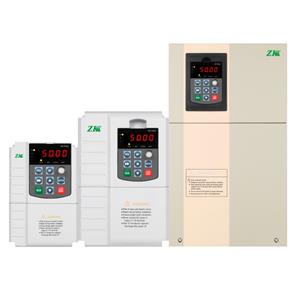The role of solar water pump inverters in rural development
In recent years, the integration of renewable energy technologies into rural development has garnered significant attention as a cornerstone of sustainable progress. Among these innovations, solar-powered water pump inverters have emerged as a transformative solution, particularly in regions where access to reliable electricity and clean water remains a persistent challenge. These advanced devices not only address critical infrastructural gaps but also serve as a catalyst for sustainable development by harnessing solar energy to power water pumps with remarkable efficiency. This essay delves into the multifaceted role of solar-powered water pump inverters in rural development, examining their benefits, applications, and transformative potential in improving livelihoods and fostering long-term resilience.
Mitigating Water Scarcity in Rural Areas
Water scarcity remains a pressing issue in many rural communities, particularly in arid and semi-arid regions where traditional water extraction methods often fall short. Conventional approaches, such as diesel-powered pumps or manual labor, are frequently inefficient, costly, and environmentally detrimental. Solar-powered water pump inverters offer a sustainable and innovative alternative by converting solar energy into electrical power to operate water pumps effectively. These systems can extract water from wells, rivers, or reservoirs, providing a dependable and continuous water supply for irrigation, livestock, and domestic use. By ensuring consistent access to water, these systems not only enhance agricultural productivity but also alleviate the burden on women and children, who are often tasked with the arduous and time-consuming responsibility of fetching water manually. Consequently, they contribute to improved health, education, and overall quality of life in rural communities.
Revolutionizing Agricultural Productivity
Agriculture serves as the economic backbone of many rural economies, yet farmers frequently grapple with challenges such as erratic rainfall patterns and limited access to reliable irrigation systems. Solar-powered water pump inverters empower farmers to irrigate their fields consistently, even in remote areas devoid of grid electricity. This technological advancement not only boosts crop yields but also enables the cultivation of high-value crops, thereby increasing income and economic stability. Moreover, the reliance on solar energy reduces dependency on fossil fuels, significantly lowering operational costs and minimizing environmental degradation. By promoting sustainable farming practices, these systems play a pivotal role in enhancing food security and fostering economic resilience in rural communities.
Economic and Environmental Synergies
The adoption of solar-powered water pump inverters offers profound economic and environmental benefits. Once installed, these systems incur minimal operating costs, as they harness free and abundant solar energy. This makes them a cost-effective alternative to diesel or electric pumps, which entail ongoing fuel or electricity expenses. Additionally, the use of solar energy substantially reduces greenhouse gas emissions, contributing to global climate change mitigation efforts. By transitioning to clean energy, rural communities can align with international sustainability goals while addressing their local development needs. This dual benefit underscores the potential of solar-powered water pump inverters as a cornerstone of sustainable rural development.
Empowering Rural Communities through Innovation
Beyond their technical capabilities, solar-powered water pump inverters play a transformative role in empowering rural communities. By providing access to clean water and enabling sustainable agricultural practices, these systems foster improved health outcomes, educational opportunities, and economic growth. Women, in particular, benefit from the reduced time spent on water collection, allowing them to engage in income-generating activities or pursue educational endeavors. Furthermore, the installation, operation, and maintenance of these systems create local employment opportunities, fostering skill development and entrepreneurship. This ripple effect strengthens community resilience and promotes inclusive development.
Overcoming Challenges for Broader Adoption
Despite their numerous advantages, the widespread adoption of solar-powered water pump inverters faces several challenges. High initial costs, limited awareness, and a lack of technical expertise can impede their implementation. To address these barriers, a collaborative approach involving governments, non-governmental organizations (NGOs), and private sector stakeholders is essential. Financial incentives, training programs, and technical support can help bridge the gap, while public awareness campaigns can play a crucial role in promoting the adoption of these systems. By addressing these challenges, stakeholders can unlock the full potential of solar-powered water pump inverters as a driver of rural development.
A Path to Sustainable Rural Transformation
In conclusion, solar-powered water pump inverters represent a game-changing innovation for rural development. By addressing water scarcity, enhancing agricultural productivity, and promoting environmental sustainability, these systems hold the potential to transform rural livelihoods and foster long-term resilience. With concerted efforts to overcome existing challenges, solar-powered water pump inverters can pave the way for a brighter, more sustainable future for rural communities worldwide. Their integration into rural development strategies not only addresses immediate needs but also lays the foundation for inclusive and sustainable progress, ensuring that no community is left behind in the global pursuit of a greener, more equitable world.




